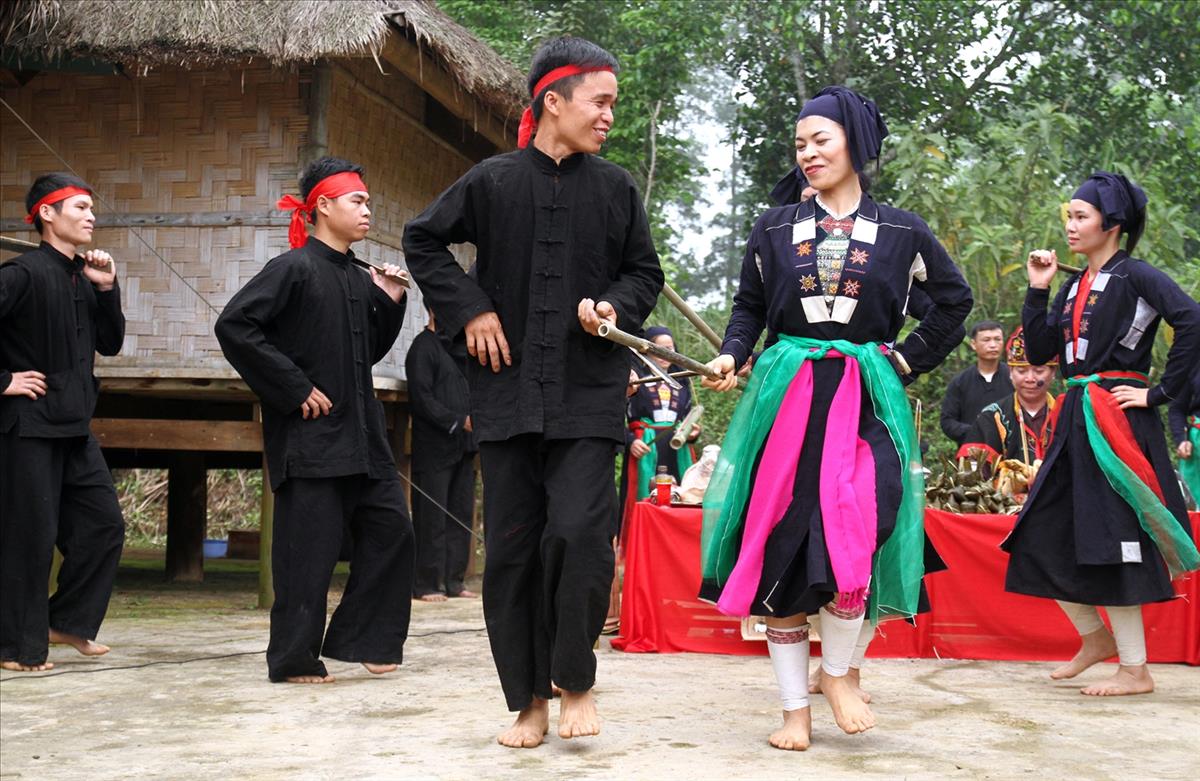The Coming-of-Age Ceremony of the San Chi People in Bac Kan

The Coming-of-Age Ceremony is a rite for the young individuals to be recognized by the spirits and the community as having come of age to carry on the family lineage. Through this ritual, the young ones also get rid of any misfortunes or bad luck from the past year, hoping for a prosperous, happy, and abundant new year. The ceremony is also an occasion for the youth to express gratitude to their ancestors, parents, and fellow villagers.
The ceremony is organized with various activities that carry the cultural essence of the San Chi people. Before the Coming-of-Age Ceremony, families prepare offerings such as rice, wine, pork, and chicken, and bring hair washing tools like bowls, spoons, and towels. The ceremony starts early in the morning with rituals at the Dragon House, an ancient temple of the San Chi people. Here, the shaman recites prayers, makes offerings, and seeks permission from the spirits to conduct the Coming-of-Age Ceremony.
After the ceremonies at the Dragon House, the procession moves to a stream near the village to prepare for the hair washing ritual. Families line up on both sides of the stream and use the tools they brought to wash each other's hair. The person washing scoops water from the stream into a bowl, pours it slowly over the other person's head, and speaks words of good wishes. After washing, the person being washed dries their hair with a towel and thanks the washer. They then switch places to wash each other. The hair washing process continues until everyone in the family has been washed. Afterward, families together offer rice, wine, pork, chicken, etc., on the altar of the spirits and pray for the new year.

In addition to the rituals, the Coming-of-Age Ceremony includes many entertaining and interactive activities among families and villages. Common activities include tug of war, archery contests, singing, human chess, and traditional dance. Tug of war is a game that demonstrates the strength and unity of the villages. Two sides pull a long rope and try to pull the other side across a boundary line. Archery contests showcase the skills and cleverness of the youth. They use bows to shoot at predetermined targets or those thrown by others. Then singing is a traditional folk opera of the San Chi people, known for its high entertainment value and reflection of the emotions, sentiments, and life of the people. Then is performed by singers with good voices, natural acting, and humor. The songs usually revolve around themes such as love, family, society, or history. Human chess is a performance and interaction game between villages, played on a large chessboard with 64 squares like a chessboard. Each side has 16 participants, each carrying a chess piece with different symbols. The two sides compete according to the rules of chess to capture the opponent's chess pieces. Traditional dance is a traditional dance of the San Chi people, with a high level of performance, demonstrating the agility and grace of the young girls. The dance is performed by two groups of 4-6 girls, each group carrying two saps (a type of tool made of bamboo for carrying water). The two groups move to the rhythm of gongs, drums, and Then singing, using the two saps to create different sounds.
The Coming-of-Age Ceremony of the San Chi people in Bac Kan is a unique and culturally significant festival in Bac Kan. The festival not only helps the San Chi people preserve and promote the cultural and spiritual values of their ethnicity but also serves as an opportunity for tourists to explore the beauty of Vietnam's traditional culture in rural areas.

